Supreme Court gives Guidance on Disciplining Employees
Toward the end of 2023, the Supreme Court issued a decision[1] in relation to a 2011 go-slow by gantry operators resulting in a crisis at the Mombasa port. The employer, Kenya Ports Authority (KPA), took disciplinary action against the respondents. The case was heard and determined by the Labour Court, appealed to the Court of Appeal and eventually the Supreme Court.
The key issue the Supreme Court was asked to provide guidance on was whether the remedies under Section 49 of the Employment Act (the Act) apply where there is no dismissal or termination of employment.
The Supreme Court’s Findings
SCOK made the following findings which are relevant to employers:
- While the Employment Act expresses the labour rights under Article 41 of the Constitution, damages under this article must be specifically pleaded and proved.
- The wording of section 49 of the Employment Act is clear it only applies where an employee has been terminated. In other situations, the Labour Court is expected to apply its discretion in determining appropriate remedies.
- An employer can only take disciplinary measures anchored either in law or its human resource policies/manuals. Disciplinary measures must be applied in conformity with the law and internal policies rather than arbitrarily.
- Where the court finds an employee intentionally contributed to the matters complained of, it should reduce the damages awarded proportionally.
Salient Lessons for Employers
The importance of staff handbooks: the Supreme Court has emphasised employers are bound by what is provided in them. Consequently, the wording used, phraseology, and other drafting considerations become very important while preparing a handbook.
The importance of disciplinary discretion: An employer cannot foresee all human resource situations it will navigate. It is therefore important for human resource policies to give employers room to deal with the unforeseen and unexpected. The fact that KPA’s disciplinary measures were not provided for in its Disciplinary Handbook was its biggest undoing.
Unfair Labour Practices can expose you to constitutional claims: Lastly, as we noted in our earlier article, an employer’s labour practices can be challenged as infringing on constitutional labour rights. This in turn exposes noncompliant employers to damages over and above what is prescribed in section 49 of the Employment Act.
Conclusion
Employers urgently need to review their human resource handbooks, manuals and policies to ensure they have discretion to deal with labour issues as they best see fit. The focus in preparing staff handbooks should be principles rather than prescriptive rules.
Reach us through info@kn.co.ke for assistance with all your employment and labour law queries.
[1] Kenya Ports Authority v Munyao & 4 others [2023] KESC 112 (KLR)
Click to Download
DISCLAIMER:
This briefing is a highlight of legislative and policy changes and is intended to be of general use only. It is not intended to create an advocate-client relationship between the sender and the receiver. It does not constitute legal advice or a legal opinion. You should not act or rely on any information contained in this legal update without first seeking the advice of an advocate.


